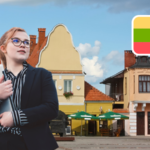With mainstream Korean dramas, it’s hard to miss certain words like good morning in Korean, don’t you think? But if you’re a beginner and want to learn common Korean morning greetings, read further on this post!
It’s not a secret that South Korean culture has captured plenty of hearts all over the world. With the romantic and entertaining dramas they have in their pockets, it’s impossible not to take a break and binge-watch their shows. Upon seeing several series in different genres, has it ever crossed your mind to learn how to speak the Korean language? To master their unique mother tongue, you might want to start with short phrases like good morning in Korean.
However, before we jump onto that, you might need to know this fact about their language. You see, Korean has several distinct sounds that may be challenging for English speakers to master, including aspirated consonants (like “p” and “t”), tense and lax vowels, and complex consonant clusters. So, are you prepared to dive deeper into Korean culture and language? Let’s begin!
Honorifics In Korean Culture
In Korean culture, honorifics are like a dance, where each person gracefully moves to the rhythm of social hierarchy. The right honorifics are used for the right person and situation, creating a respectful atmosphere where everyone knows their place and can interact with ease. Below are the common honorifics used in their language:
| English | Hanggeul | Roman | Used by |
| Older Brother | 오빠 | Oppa | Used by a younger female to call an older male. |
| Older Brother | 형 | Hyeong/Hyung | Used by a younger male to call an older male. |
| Older Sister | 언니 | Eonni, Unnie | Used by a younger female to call an older female. |
| Older Sister | 누나 | Nuna/Noona | Used by a younger male to call an older female. |
| Senior | 선배 | Seonbae/Sunbae | Used by both genders to call someone older than them in school/university. |
| Junior | 후배 | Hoobae/Hubae | Used by both genders to call someone younger than them in school/university. |
| Miss/Mrs./Mr | 씨 | -ssi | Used by both genders to show respect to someone in a business setting. |
| Miss/Mrs./Mr. | 님 | -nim | Used by both genders to show respect to someone in a business setting. It’s considered more polite or respectful than -씨. |
Now that you know these honorifics, be sure to use them along with the greetings that we’ll discuss below. I know that they may sound confusing at first, but there’s no other way to learn this topic than to practice. Let’s begin!

Basic Ways To Say Good Morning In Korean
1. 좋은 아침! (Joeun Achim)
This simple phrase literally means good morning in English. Joeun refers to the adjective “Good,” while Achim means “Morning.” Although they have this informal greeting in the Korean language, locals don’t typically use it in real life. It’s considered awkward, and there are a lot of more formal and informal versions of saying this morning greeting.
2. 좋은 아침입니다 (Joeun Achimimnida)
This is the much more formal version of the first greeting. It translates to “The morning is good,” now, don’t you think it’s an odd way of saying good morning to someone? Adding -imnida at the end of it makes it sound more professional, but it’s not something that workers use in their everyday life.
3. 굿모닝 (Slang- Good Morning)
The influence of Western countries is all over the world, and it’s hard not to have a slang version of some Korean words and phrases. 굿모닝 (Guun-mo-neeng) is the Konglish (Korean-English) version of the typical morning greeting in English. Plus, you may also notice that this is just the Korean phonetic spelling of the phrase itself. You’ll probably not use it when speaking with someone as it doesn’t have a standard Korean meaning, but it’s used when texting close friends and in social media spaces.

Other Morning Greetings In The Korean Language
Now we’re not hunting for phrases and sentences that literally translate to good morning in Korean. If you want to blend in a little better, you must learn standard Korean greetings that you can use in casual and professional settings.
1. 잘 잤어요? (Jal Jasseoyo)
Do you want a sweet way to say good morning in Korean? Well, this phrase right can make you smile in an instant as it means, “Did you sleep well?” It’s not the most direct way to say good morning in Korean, but it’s still a good way to greet someone in the morning in Korean culture.
2. 잘 주무셨어요? (Jal Jumusyeosseoyo)
You can spot the similarities between this and the first one, can’t you? If you want to ask if someone slept well in a formal and polite way, then its honorific form is your go-to question. It’s typically used on someone older than you.
3. 안녕 (Annyeong)
If you’ve watched plenty of K-Dramas, it’s no surprise if you’ve gone through the phase wherein you start using this word to say hello to your friends. It’s an informal way to greet people of the same age, and it’s even used in casual speech. Aside from using it to start conversations, you can also utilize it to greet someone at any time of the day, like good morning in Korean or to say goodbye.
4. 안녕하세요 (Annyeonghaseyo)
It’s a commonly used greeting when formally meeting someone. Adding -haseyo at the end of the phrase helps you show more respect toward other folks. It’s one of the first greetings that you’ll encounter when you learn Korean. Just like its informal version, you may also use this to say good afternoon and other daily greetings.
5. 안녕히 주무셨어요? (Annyeonghi Jumusyeosseoyo?)
If you want to ask someone if they’d sleep peacefully, picking this greeting to address someone is your way to go. However, note that Koreans generally use this when the person they’re speaking with just woke up. It would be odd to ask someone this question during lunch, don’t you think? Additionally, 안녕히 주무셨어요? is the more formal version of 잘 주무셨어요? (Jal Jumusyeosseoyo).
Can’t Get Enough Of The Korean Vocabulary? Try Ling Today!
South Korea has invaded everyone’s hearts these days, and learning the commonly used greetings in their language surely makes it earlier for us to understand them. But hold up now because what we covered here is just the beginning of learning their language – you still have a long way to go! So, if you want to discover more about their mother tongue, why not try the Ling app today?
With the app, learning Korean and 60+ other languages becomes easier since it offers interactive quizzes that’ll add challenges to your daily life. These brain exercises are one of the best ways to master more than 60 languages! Ready to give it a try? Download Ling today for FREE on Play Store and App Store!



















